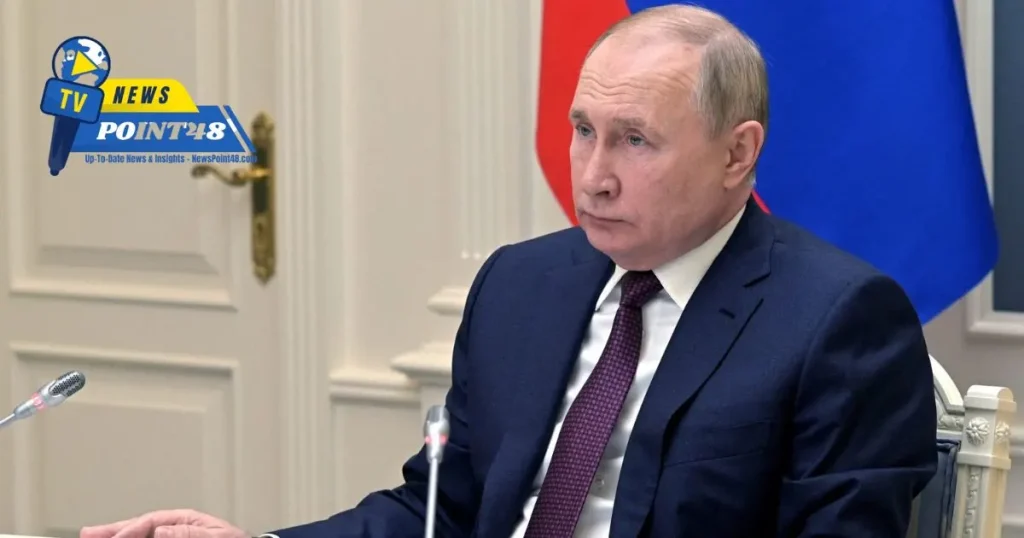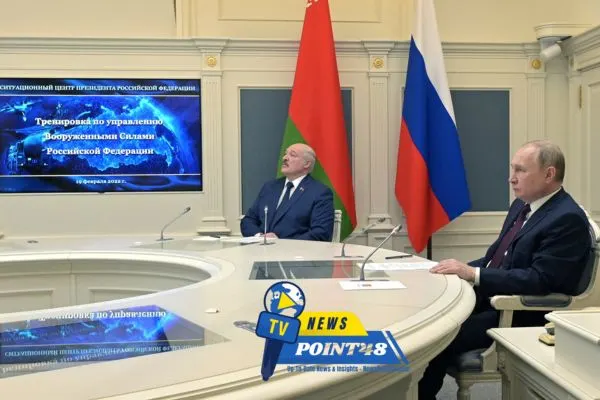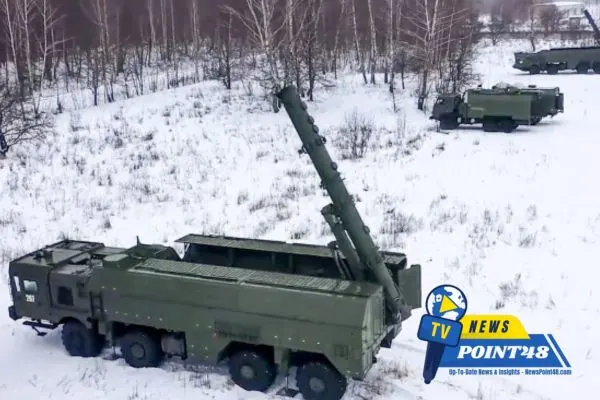
Russia, in a move both hugely significant and deeply troubling, has sent its first signal that it’s changing its official position on when it would deploy nuclear weapons. While the geopolitical tensions between Russia and Western nations spiral out of control, Moscow blames the Western provocations to risk driving this confrontation to a boiling point. The international community took notice of this action, as a shift that could redefine global security dynamics.
The Changing Contours of Russian Nuclear Doctrine
Since the Cold War, it has had an official nuclear doctrine that only permits the use of nuclear weapons in retaliation to an existential external threat — such as a direct nuclear attack or a massive conventional assault that puts the Russian nation at significant risk. Yet several statements by senior Russian officials have implied that this policy could become more confrontational, thus decreasing the threshold for using nuclear weapons.
In many cases, Russian President Vladimir Putin and other Kremlin officials have suggested using nuclear weapons in “defensive” or even “preemptive” circumstances. The comments follow military actions in Ukraine, where Moscow is under increased pressure due to setbacks and growing Western sanctions, military assistance for Ukraine, and NATO’s troop build-up in Eastern Europe.
The rhetoric change hints that Moscow may no longer view nuclear deployment as an option of last resort; rather, it could move to this recourse if feels its security is getting more dangerous.
A West-bashing: Cue for more escalation and provocation?

Russia has long alleged that Western countries—chief among them the U.S. and its NATO allies—are responsible for stoking tensions in Europe. The Kremlin claims that Western military assistance to Ukraine, along with more NATOtroops near their border, has brought it closer to war.
Moscow has said that the export of advanced weapons systems — such as air defense missiles, drones, and heavy artillery — to Ukraine would be seen as provocation. This is seen by the Kremlin as a part of a wider strategy, coordinated by the US and its allies, to undermine Russia’s global position and directly endanger its national security.
The Kremlin has also cited NATO’s refusal to abandon plans for a further eastward expansion, as well as urging Ukraine and Georgia to join the bloc. To Russian eyes, this steady march places Western military power near their shores, and there is too much risk that it causes a flashpoint for conflict.
A Strategic Change In Russia’s Nuclear Weapons Policy.
Indeed, the nuclear policy now exists in Russia under a deterrence doctrine that states it will use its atomic weapons only as a last resort—such as if attacked with nukes or with conventional forces on a large scale. Yet a creeping encirclement complex and the feeling that Western powers were pushing them into a corner may well be making Moscow rethink its stance on this.
Russian defense officials in recent speeches dropped vague hints of an evolving nuclear doctrine that would allow for limited — potentially, even preventive — use of such weapons in response to certain “threatening scenarios.” If this shift is ultimately formalized, it would represent a significant break with the nuclear policy Russia has abided by since the end of the Cold War and could lead to an even more dangerous arms race.
There is also some speculation that Russia could be increasing its inventory of tactical nuclear weapons. Tactical nukes are a classification that includes an increasingly vast range of weapons with yield even smaller than strategic nuclear warheads and meant to be used on the battlefield as localized destructive devices rather than massively conductive ones. A weapon of this sort could be viewed as a means for Russia to display military prowess while avoiding an all-out nuclear exchange.
The World’s Reaction: Heightened Fears

The implications of sending a signal like that by Russia to the West and the rest of the world also trigger worrisome. Western leaders have condemned Russia’s more aggressive statements, and diplomatic sources say the changes in its stance on nuclear weapons would have far-reaching consequences for global security.
The US, NATO, and EU have also urged calm and stated that any use of nuclear weapons would have “massive consequences” (AFP Photo/Jonathan Nackstrand) Amid Russia’s increased military activity and threats, all of the above measures have been paralleled by a ramping up of NATO exercises with additional forces deployed to Eastern Europe.
The United Nations and other global entities have renewed warnings to seek nuclear disarmament by both sides, fearing that an escalation could end up being catastrophic for all humanity. Yet European efforts at diplomacy have been primarily frustrated because Russia, which has also said it supports a political solution in Ukraine, continues to rebuke Western activities.
Geopolitical and Global Security Strategic Implications
On the contrary, if Russia were to expressly reduce its threshold for the use of nuclear weapons, that would have an immense impact on the way strategic risks are calculated in Europe and elsewhere. The threat of Original Sin may lead nuclear-armed countries like the U.S., China, and many NATO members to rethink their nuclear strategies. This could trigger a new arms race and even more global instability.
At the same time, moreover, this moving could line up with an error of judgment. Simply put, when both Israel and Iran are close to an instantaneous release posture, the danger of misinterpretation or a war-setting spiral could result in nuclear use regardless that neither side wants a nuclear conflict.
Another complication in an already complicated part of the world is uncertainty over exactly how Russia plans to handle its nuclear policy going forward. That conflict might not just lead to tighter sanctions and a political cul-de-sac, one that could grind into an international new Cold War quagmire; instead, the Russians have counterattacked and now they are on the attack — leading Putin where he never intended to go (it had previously been his unspoken policy) with seriously high stakes.
What This Means for the Future

The potential for change in Russia’s commitment to its nuclear weapons is uncertain at present, but even talk of it suggests a perilous moment in world geopolitics. There is a high probability that Russia will increase its aggression in language and policy changes as it faces continued failures of its military campaign in Ukraine, and rising pressure from the West.
In the meantime, the world will be watching carefully how these signals are alphabetized into action by Russia. Keeping diplomacy alive will be essential to minimize the dangers of further escalation. But unless there is some change in direction, the world seems to be entering a less stable and predictable chapter in nuclear politics.
With local roots and global reach, today’s terrorists are a transnational challenge — it is time that our response to this menace is equally borderless.
The apparent change in the nuclear weapons policy of Russia is at a period when international tensions are high, especially between Moscow and the West.
